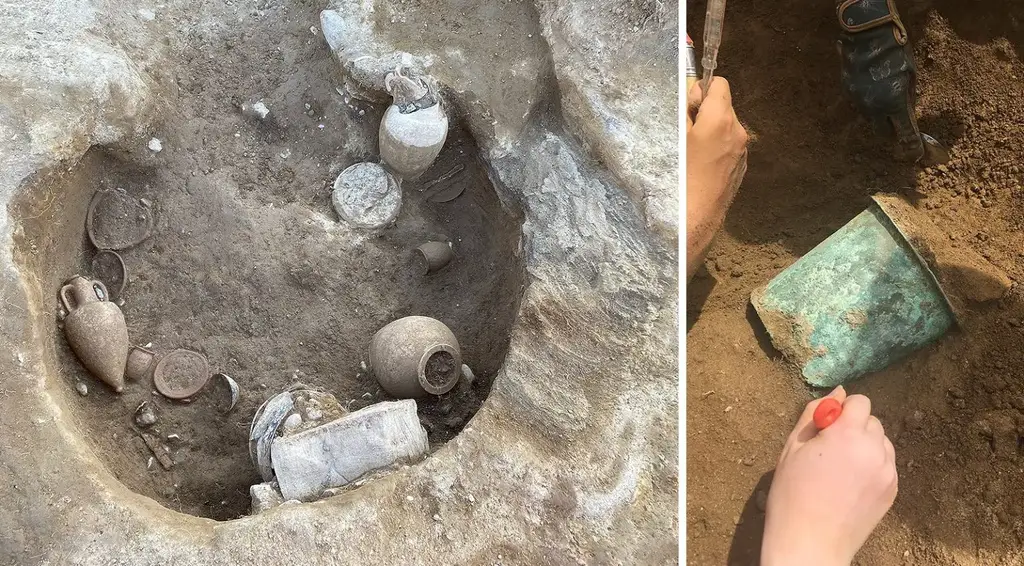Excavations of a 2nd century BC burial site in the southern Tuscany region of Italy is providing new insights into Etruscan identity that survived the Roman conquest of Etruria.
The site was discovered in 2017 during a construction project, revealing a settlement and associated burials, which was investigated by researchers at the time but never published.
The settlement is one of few Etruscan sites untouched by looters in antiquity or modernity, allowing researchers to analyse grave goods that are relatively intact, and further understand the distinct Etruscan burial rituals.
According to researchers, the entrenched and distinct characteristics of the Etruscan population survived in the presence of the dominant Roman power and its associated law.
The Etruscan traditions continued for over two centuries following the Roman conquest, shaping the local area with a fusion of both civilisation’s social, cultural, and economic habits, until the area was devastated during the Social War between the Roman Republic and several of its autonomous allies (socii) in Italy.
“These findings show us how we should speak more of cultural and social osmosis rather than a subordination of one population to another,” says Alessandro Sebastiani, the paper’s author and assistant professor in the Department of Classics. “The analysis reveals the interesting and sophisticated relationship between the Etruscans and the Romans, where the Etruscan communities are both surviving and adapting themselves into the Roman world.”
“We opened three Late Etruscan tombs that were totally intact, which sheds new light on the societal representation of the families living and working in the village,” Sebastiani says. “Because these sites have been looted for gold, it’s quite rare to find one untouched, with all of the grave goods present after more than 2,200 years, including gold earrings, gold crowns, bronze rings with the representation of Hercules, iron strigils (a tool for cleaning the body) and fine pottery.
“The project is providing new pieces to the intricate puzzle of historical settlements in Etruria during the transitional period of the Roman conquest, their development into the imperial political system, the long late antiquity, and the rise of medieval society”, says Sebastiani.
Header Image Credit : University at Buffalo






